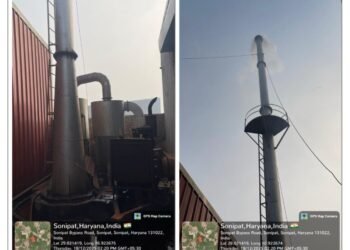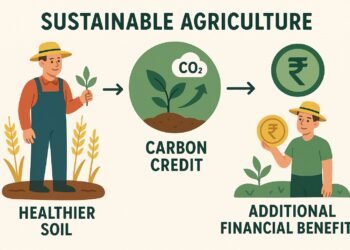It may hike costs for green construction, potentially slowing adoption in Tamil Nadu’s booming real estate sector
CHENNAI (India CSR): In a blow to manufacturers hoping for lower taxes on sustainable building materials, the Tamil Nadu Authority for Advance Ruling (AAR) has ruled that fly ash bricks – popular for their eco-friendly use of industrial waste – must attract a 12% GST rate, regardless of their fly ash content. This decision, issued on September 1, 2025, to Chennai-based M/s. SRS Industries, clarifies long-standing confusion and overrides suggestions from a Gujarat High Court order that hinted at a 5% rate.
Fly ash bricks, made from at least 50% fly ash (a byproduct of coal power plants), quarry dust, and cement, are widely used in construction for their cost-effectiveness and lower environmental impact compared to traditional clay bricks.
- The Tamil Nadu Authority for Advance Ruling (AAR) has ruled that fly ash bricks manufactured by Chennai-based SRS Industries will attract 12% GST under the Central and State tax schedules, regardless of the fly ash content in the bricks.
In its Advance Ruling No. 34/AAR/2025 dated September 1, 2025, the AAR bench comprising C. Thiyagarajan (CGST) and B. Suseel Kumar (SGST) clarified that the applicable Harmonised System of Nomenclature (HSN) code for fly ash bricks is 6815 99 10, which falls under Schedule II of Notification No. 1/2017-Central Tax (Rate).
The order settles confusion over differential GST rates for bricks with more than 51% fly ash content. The authority ruled that since July 18, 2022, all fly ash bricks are taxed at a uniform 12% GST (6% CGST + 6% SGST), abolishing earlier conditions linked to composition variations.
Manufacturers may, however, choose to pay a lower rate of 6% GST (3% CGST + 3% SGST) only if they forgo Input Tax Credit (ITC) under conditions specified in Notification No. 2/2022–Central Tax (Rate). The AAR reaffirmed that SRS Industries is currently availing ITC, and therefore cannot claim the reduced rate.
The authority also held that no GST exemption or special rate applies even when the bricks are sold to government bodies or PSUs for infrastructure projects. Additionally, fly ash brick manufacturers are not eligible for the GST composition scheme, as per amendments effective from July 18, 2022.
The AAR concluded that SRS Industries must pay GST under the regular taxation system, not the reverse charge mechanism, and rejected queries relating to raw materials as beyond its jurisdiction.
This ruling provides much-needed clarity for fly ash brick manufacturers across Tamil Nadu, aligning state interpretation with national GST notifications and emphasizing uniform tax treatment for eco-friendly construction materials.
The ruling stems from SRS Industries’ March 2025 application amid buyer pushback – their purchase orders quoted 12% GST, clashing with the Gujarat court’s 5% interpretation of an older 2018 notification. During an August 2025 hearing, proprietor T. Sankar confirmed the firm’s composition (50% fly ash, 45% quarry dust, 5% cement) and supplies to private builders and contractors.
This decision binds SRS Industries and jurisdictional officers unless laws or facts change, but it could influence similar cases statewide. Industry watchers say it promotes uniformity but may hike costs for green construction, potentially slowing adoption in Tamil Nadu’s booming real estate sector.
The AAR noted one query – on GST for fly ash as a raw material – falls outside its scope, as it pertains to third-party supplies, not the applicant’s own transactions.
For full details, the order (No. 34/ARA/2025) is available via the Tamil Nadu GST portal. Appeals must be filed within 30 days to the State Appellate Authority.
(India CSR)





















